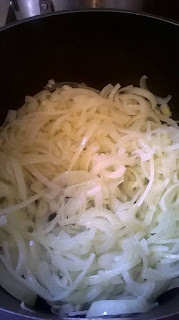The Betrayal of Boys?
The article (follow the link in the title) suggests it is "feminism's fault" boys are failing at school because girls are doing better than them. In modern times it seems everyone and their dog is to blame for the school system failing, except, of course, the system.
I think it is a complicated mixture of issues as to why it looks like boys do far worse from the current system than girls often do.
Firstly play. Play in school (especially in British schools) is at a record low with children as young as four being expected to be able to "sit down and do as they are told". Wild play, dirty play, messy play is often seen as "male" and is not usually acceptable. Feminine or "girl play" is far for acceptable in the school environment. When you think that some of these four year olds can be at pre-school clubs and then after-school clubs (all still run with school rules) for their whole day, they simply do not get the time to embrace the wilder play at all.
Girls are also expected to behave "better" than boys from a much younger age. They are used to have to obey and do as they are told. The cultural expectation often means boys get a rude awakening at school and have difficulty adjusting. This is also the age that schools begin to label children as being "difficult" "unruly" or having "issues". Most of these come back to their very young age and play deprivation.
If a boy does have special needs he is likely to behave differently than a girl with the same condition. If they are ignored, bored or frustrated the way they emotionally react will be different. Girls will cry and boys robbed of this outlet often lash out at a system that has no air for them. Dyslexia test are still not standard in most schools even though we have know they could be (and are at higher education like colleges). Children get labelled (very young) as "thick" or "difficult" and by the time they reach high school at the age of 11 they believe it. At 14 they are in the bottom sets for everything and no-one even bothers to teach them what will be in the exam. School becomes pointless and they know it. Girls are also cast aside but opportunities and expectations are different for "difficult" girls. They tend to assume caring roles either in their families or in the work place.
When the big tests are G.C.S.E's at 14-16 this means most girls have gone through their big hormone spike of puberty and have mostly come out the other side by the time exams and such come around. We are now asking boys going through a huge testosterone spikes to "sit still and be good" and they are chemically not designed to do so.
The current school system was designed (bells and all) to train clerks and factory workers to "obey the bells". The system isn't "failing" it is doing exactly what it was designed to do. It has always failed working class and special need boys. My step-brother couldn't read (20 years my senior) but as a farmer's son no-one cared.
It was designed to make a work-force, a labour force, except in the UK the industries that were designed to soak up and make use of these young men no longer exist.
There is no mining industry, no steel, no factories, no farming. Even the military is firing not hiring. The jobs school was designed to fill no longer need them.
It is society, the system it's self, not feminism at fault.
Women are not "stealing" their jobs. Under qualified women (and qualified) join different industries. From cleaning, caring, hospitality and beauty, women go on to work and have families, but the men often don't.
We know that how we educate isn't working. We know and have known the environments that produce happy healthy and successful people and yet we still continue to do the opposite. It is difficult to believe this is accidental. It is difficult to believe that Governments and right-wing papers blame immigrants, teachers and even women when the blame squarely lies with the system it's self; yet those who have been told they are "thick" long enough will swallow anything that absolves them of the guilt and shame they feel about being "stupid".










































